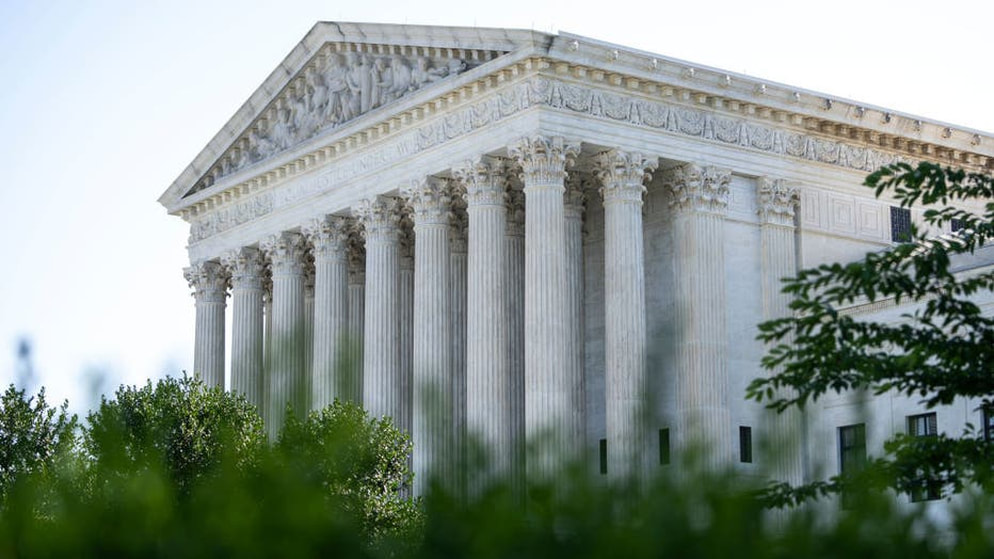|
The U.S. Supreme Court in a 6-3 decision this morning ruled that the California Department of Justice’s policy of demanding blanket disclosure of donors to 501(c)(3) charities burdened the First Amendment rights of those charities and their donors, and was not narrowly tailored to serve any important government interest.
“This is a major victory for the First Amendment rights of donors,” said Erik Jaffe, Protect The 1st director of policy. “We’ve seen social media being used to ‘dox’ donors on both the right and the left. We’ve seen people lose their reputations, their jobs and be physically threatened. The Supreme Court today took a major step toward reenforcing the protection of donors and members of associations in place since the Court protected the membership list of the NAACP from the State of Alabama in 1958.” The Court reversed the Ninth Circuit in Americans for Prosperity Foundation v. Bonta (previously Becerra) and the companion case of Thomas More Law Center v. Bonta. “This result is not only a big win for the First Amendment,” Jaffe said. “But in accepting the facial challenge to the disclosure requirement as a whole it is more protective of First Amendment rights than many observers expected from the Court. Protect The 1st congratulates the petitioners in this case and is pleased and proud to have, along with our friends at Pacific Research Institute, supported them with an amicus brief to the Supreme Court. PT1 is also pleased to have had so many other organizations from all across the ideological spectrum likewise support the petitioners and the First Amendment rights of all organizations and their donors.” Chief Justice John Robert’s majority opinion was joined in most parts by Justices Thomas, Alito, Gorsuch, Kavanaugh, and Barrett. The dissent by Justice Sotomayor was joined by Justices Breyer and Kagan. Various Justices in the majority filed separate opinions disagreeing with some parts of the opinion but agreeing with the result. In the majority opinion, the Chief Justice noted early on “that ‘[i]t is hardly a novel perception that compelled disclosure of affiliation with groups engaged in advocacy may constitute as effective a restraint on freedom of association as [other] forms of governmental action,’” citing NAACP v. Alabama ex rel. Patterson, 357 U. S. 449, 462 (1958). Chief Justice Roberts then proceeded to apply a standard known as “exacting scrutiny” to require a “‘substantial relation between the disclosure requirement and a sufficiently important governmental interest.’” In a portion of the opinion not joined by a majority of the Court, the Chief Justice rejected the use of the more protective “strict scrutiny” standard and declined to make a distinction between election-related cases and other cases that were argued to warrant greater scrutiny. The failure of that portion of the opinion to garner a majority, however, did not alter the result, as the policy being challenged failed even under the weaker “exacting scrutiny” standard. The other major take-aways from the decision are:
While the various opinions went into far more detail on important subsidiary questions, Protect The 1st will address those in later posts analyzing the case in greater detail. For now, the Court reached a proper and protective result and rejected frivolous claims by the California Department of Justice that boiled down, at best, to the desire for administrative convenience at the expense of First Amendment rights. As for the concurring opinions, Justice Thomas would have gone further than the Chief Justice’s opinion and applied “strict scrutiny” rather then the more limited “exacting scrutiny” used by the Chief Justice. He also would have placed greater emphasis on the protection for anonymous speech and association, an interest not much discussed in the primary opinion. In the other direction, Justice Thomas expressed skepticism with the Court’s so-called “overbreadth doctrine,” thus seemingly rejecting the Court’s holding that the law is facially unconstitutional and cannot be enforced at all, rather than merely unconstitutional as applied to the specific parties who sued. But as he was the only member of the majority to take that narrower view, there are still five votes rejecting California’s policy on its face. Justice Alito, joined by Justice Gorsuch, also suggested that “strict scrutiny” would have been the proper standard and would not join the Court’s rejection of that standard in favor of “exacting scrutiny.” But because “the choice between exacting and strict scrutiny has no effect on the decision in these cases, I see no need to decide which standard should be applied,” he wrote. Finally, Justice Sotomayor, joined by Justices Breyer and Kagan, dissented and would have required case-specific evidence of privacy or chilling concerns. She gave little weight to the evidence in the court below on those concerns in this case, much less in general. She also gave little weight to the concerns about retaliation from the government of California itself, not just from public disclosure. In the end, she would have rejected both the facial and as-applied challenges by applying a variable and weaker means-ends tailoring requirement diluted by the perceived absence of a substantial burden on the charities involved. “Like the majority, the dissent had further and interesting discussion about subsidiary First Amendment issues that are important to those who follow and litigate such matters,” Jaffe said. “But the overall approach suggested by the dissent would have done much to weaken First Amendment protections for the freedom of association, would have empowered hostile governments to harass and retaliate against their political enemies – whatever side of the political aisle they may be. PT1 is thankful such a First Amendment-destructive approach did not garner a majority.” Comments are closed.
|
Archives
June 2024
Categories
All
|
ABOUT |
ISSUES |
TAKE ACTION |



 RSS Feed
RSS Feed